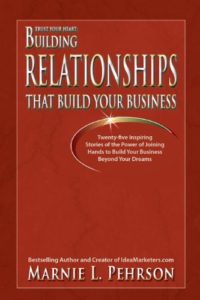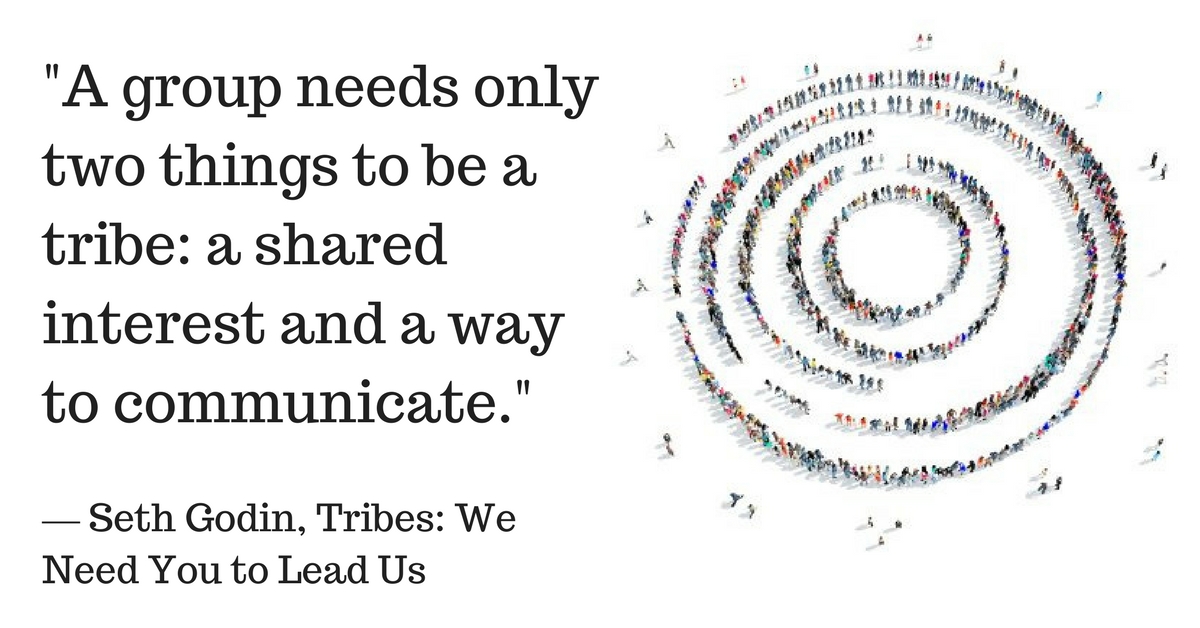Thought Leadership: Are You a Thought or Tribal Leader?
by Marnie L. Pehrson
Do you consider yourself a leader? Do people follow you? Even if it is a small group? Have you ever considered whether you might be a
- Tribal Leader
- Movement Leader or a
- Thought Leader?
Is there a difference and why would it matter which type you are? I think it’s important to consider what type of leader you are so that you can be more effective in your own style of leadership. Let’s look at what each one entails. Keep in mind a couple of these definitions are mine. So this isn’t written in stone.
Tribal Leader
Seth Godin who wrote the book Tribes, defined a tribe this way
“A tribe is a group of people connected to one another, connected to a leader, and connected to an idea. For millions of years, human beings have been part of one tribe or another. A group needs only two things to be a tribe: a shared interest and a way to communicate.” ― Seth Godin, Tribes: We Need You to Lead Us
So a tribal leader is someone who has a shared interest with a group that they’ve gathered. And they have an active way of communicating back and forth with this group. Members of the tribe also have ways of communicating with each other and with their leader.
Movement Leader

A Movement Leader would be someone who is creating a shift in thinking in order to create change. A Tribal Leader could be a Movement Leader if the shared interest with their community is about facilitating some kind of change.
President Trump is a great example of a Movement Leader. He frequently says it’s not about him; it’s about the movement. He has continued to operate as a Movement Leader and not just a President of the United States.
This is one thing that distinguishes his presidency, besides his “get it done” and “keep campaign promises” philosophy. Then, again, even his follow-through is an outgrowth of having built a relationship of trust with his tribe. He wants to maintain that trust by following through on promises.
I think it would be difficult for an effective Movement Leader to not also be a Tribal Leader. Effective Movement Leaders have two-way communication with their followers. You also see sporadic groups popup for tribal members to communicate with each other. For example, there are several “Women for Trump” Facebook groups you can join.
Because he considers himself a movement leader, President Trump continues to conduct rallies long after he’s won the election. He still wants to be among the people and listening to them. This is also why he conducts meetings where he listens to educators, police chiefs, business people, etc. and incorporates their feedback into his policies.
Thought Leader
Tony Kershaw wrote in his article, “The 5 I’s of Thought Leadership:”
“To me, thought leadership is the process of combining your professional and personal experiences to explain a big idea. The process should influence how people perceive the world they live in and should help them re-imagine it from a different point of view. Thought leadership connects seemingly disparate ideas together and inspires new ways of thinking and behaving.”
“To become a thought leader, you must build a reputable brand around your ideas. The difference between regular leaders and thought leaders is that thought leaders have a large following while their regular counterparts don’t.”
A Thought Leader is someone who teaches, informs and educates around a concept or idea. Thought Leaders have lots of people reading their books, following their work, and listening to them. But they don’t necessarily create a community or two-way communication between themselves and the people who follow them. They don’t necessarily facilitate ways for their followers to communicate with each other either. If they do, then we’re back to Tribal Leader. 🙂
Leader
The average leader is not a Thought, Movement or Tribal Leader. To be a Thought Leader you need scale. You need lots of people following you. But leaders show up in all aspects of our lives. Parents are leaders. Teachers are leaders. Never under-estimate the impact you can have on the lives you touch.
Do you consider yourself a leader? Which type are you? And are you happy with that type or would you like to morph into another?
 Trust Your Heart: Building Relationships That Build Your Business
Trust Your Heart: Building Relationships That Build Your Business
by Marnie L. Pehrson
True Accounts of Entrepreneurs Who Have Tapped into the Power of Leveraging Relationships to Build Their Businesses! Filled with valuable relationship-building tips for the newbie and seasoned entrepreneur alike, Trust Your Heart: Building Relationships that Build Your Business will inspire you to tap into the synergistic power of relationships to catapult your business to the next level.
In this transformational book, twenty-five entrepreneurs pull back the curtain to reveal their powerful and life-changing lessons on how to:
- Create prosperity through partnership.
- Uncover gems in your current associations.
- Define success principles involved in joint venturing.
- Tap into the capital lying dormant within your relationships.
- Create raving fans out of your clients and customers.
- Invest in your clients so they invest in you.
- Build a team that supports and champions your success.
Discover how to fuel your own dream surrounded by people who support, encourage, and leverage your influence in the global marketplace. It’s time to uncover the profit potential in building the relationships that build your business. Click here to download a sample.
Marnie Pehrson Kuhns is a best-selling author and musician who helps subject matter experts leverage their wisdom and stories to create visibility, education, influence and sales in the marketplace. Whether she’s helping you distill your wisdom into books and information products or create visibility for your company, Marnie focuses on creating connection and loyalty.
Marnie helps her clients lead with their stories, connect from the heart, educate their market, and create loyal customers who send word-of-mouth referrals.






